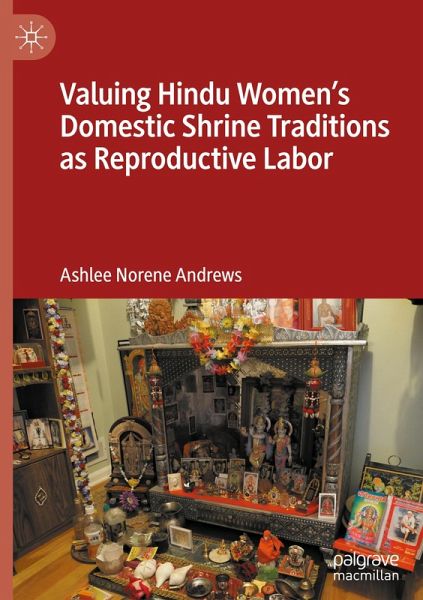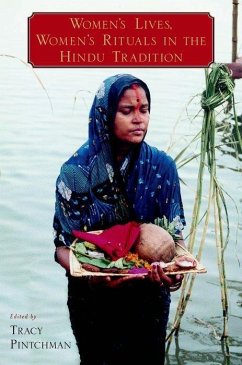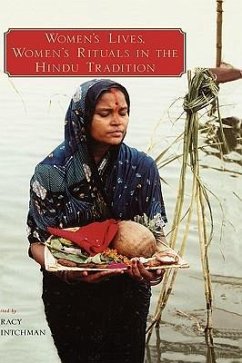
Valuing Hindu Women's Domestic Shrine Traditions as Reproductive Labor

PAYBACK Punkte
53 °P sammeln!
Historically in middle-class Bengali Hindu households it has been the matriarch's responsibility to arrange and maintain the domestic shrine and to perform daily rituals of deity worship and caretaking-termed in this book as domestic shrine traditions. These traditions are often assimilated with the other domestic caretaking labor women are expected to complete for their families.Utilizing a years-long ethnography with Bengali American Hindu women, and drawing from Marxist feminist Social Reproduction Theory, this book argues that domestic shrine traditions are reproductive labor that is essen...
Historically in middle-class Bengali Hindu households it has been the matriarch's responsibility to arrange and maintain the domestic shrine and to perform daily rituals of deity worship and caretaking-termed in this book as domestic shrine traditions. These traditions are often assimilated with the other domestic caretaking labor women are expected to complete for their families.
Utilizing a years-long ethnography with Bengali American Hindu women, and drawing from Marxist feminist Social Reproduction Theory, this book argues that domestic shrine traditions are reproductive labor that is essential to the transnational and transgenerational sustenance of Hindu traditions and subjectivities. As the first monograph focused on Hindu women's domestic shrine traditions in the United States, this book illuminates both the value of these traditions for the women who maintain them, and how these traditions connect immigrant Hindus to family and ethno-religious identity in waysunmatched by the public Hindu temple or organization.
Utilizing a years-long ethnography with Bengali American Hindu women, and drawing from Marxist feminist Social Reproduction Theory, this book argues that domestic shrine traditions are reproductive labor that is essential to the transnational and transgenerational sustenance of Hindu traditions and subjectivities. As the first monograph focused on Hindu women's domestic shrine traditions in the United States, this book illuminates both the value of these traditions for the women who maintain them, and how these traditions connect immigrant Hindus to family and ethno-religious identity in waysunmatched by the public Hindu temple or organization.














